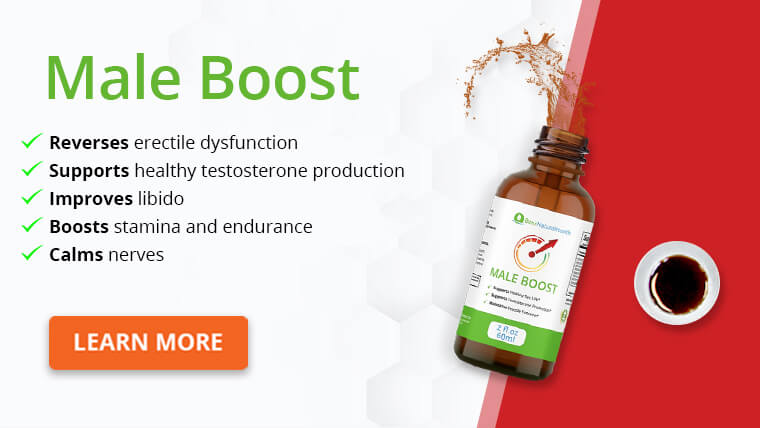Minoxidil is the main chemical composition ingredient of Rogaine.
Minoxidil was a drug used to treat hypertension until researchers realized one of the main side effects was accelerated hair growth.
Now, Minoxidil is commonly used to treat hair loss.
The success rate of minoxidil treatment is high, but it needs to be used every day for an extended period, and many patients quit their treatment before seeing results.
Topical minoxidil is an over-the-counter medication because it acts on the skin without many adverse effects.
It is available in creams, foam form, and other topical applications with a delivery medium and additives designed to target the skin. It comes in a concentration of 2% and 5%.
Nowadays, a Rogaine prescription can help with male pattern baldness treatment. It is useful to prevent hair fall and hair thinning.
While Minoxidil (Rogaine) has many benefits for hair loss treatment, it can have side effects, and some of them could affect patients sexually.
Keep reading to learn the possible sexual side effects of Minoxidil.
4 side effects of Minoxidil sexually
The sexual side effects of Minoxidil are not yet studied, maybe because oral Minoxidil was not commonly recommended in the past.
However, some patients have experienced side effects sexually with minoxidil, such as a sudden onset of sexual dysfunction, reduced libido, sexual performance problems, and erectile dysfunction.
Let’s explore each potential side effect in more detail below.
Sexual dysfunction
This is a potential sexual side effect of Minoxidil. Male sexual dysfunction means the man can’t experience satisfaction from their sexual activity.
Lower sex drive
A lower libido is a reduction in sexual desire. A low libido can lead to difficulties with intimacy and relationships.
Problems with sexual performance
Another possible side effect of Minoxidil sexually is experiencing difficulties with sexual performance.
Erectile dysfunction
Erectile dysfunction (impotence) is another potential side effect of Rogaine. ED is when you cannot get an erection sufficient for sexual penetration or sexual satisfaction.
General side effects
The main side effects of topical minoxidil include skin irritation and hypersensitivity to sunlight, which is why it is best to avoid sun exposure.
Other side effects include:
- Dizziness
- Fast or irregular heartbeat,
- Swelling of the hands and feet
Does minoxidil lower testosterone?
There’s no proof that men under minoxidil have low testosterone levels. One study found that minoxidil was binding to the androgen receptor and blocking the action of testosterone competing for the ligand-binding domain. But this is still in the initial phase, and we only have in-vitro studies.
Does minoxidil affect libido or cause ED?
There’s no scientific evidence of this. However, some patients report this as a possible side effect. And if minoxidil inhibits testosterone response, their claim has a strong rationale.

How does Minoxidil compare with other medications for hair loss?
Minoxidil is not the only medication used for hair loss. There are many in the market, and most are available as creams and topical solutions. Other treatment options include:
Finasteride
This is a 5-alpha reductase inhibitor. It works by preventing the conversion of testosterone to DHT. This reduces the amount of DHT in your body.
It is given as an oral pill. Propecia is a brand name for finasteride, and it is one of the best-selling drugs for benign prostatic hyperplasia.
It is also used to treat male pattern baldness because it reduces the amount of active testosterone (DHT) in the organism.
There are plenty of differences between finasteride vs minoxidil, starting with the mechanism of action, which is radically different. Moreover, minoxidil stimulates hair growth directly, while finasteride reduces DHT-triggered damage to the hair follicles.
Nanoxidil
Nanoxidil is another commonly used topical treatment for hair loss. The molecule is very similar to minoxidil, except that it is smaller and has a reduced molecular weight. This is positive because it lets nanoxidil stay in place for a more extended period and increases its bioavailability.
You could say that the main difference between nanoxidil vs minoxidil is the molecular weight, and it is recommended as an alternative when minoxidil is not effective.
Get Your FREE Low Testosterone Diet Plan
- The ultimate testosterone boosting diet
- Combined with exercise & lifestyle advice
- Developed exclusively by our nutritionist
Conclusion
Is Rogaine toxic for your sexual function? The answer is not yet clear if you look at scientific studies.
More recently, the oral application of minoxidil has been proposed as an alternative for patients who do not respond to creams and foams or have an adverse skin reaction. These oral applications can reduce hair shedding and thinning, but what about the systemic side effects?
Some patients have described side effects related to their sexual health, and there’s a rationale behind that. Studies show that minoxidil (Rogaine) binds and may inhibit testosterone receptors, which conveys libido problems and other sexual health risks.
As of now, it is yet too early to reach a conclusion about the side effects of minoxidil sexually. However, for those patients who experienced them, there’s always an alternative with natural remedies such as saw palmetto, pumpkin seed oil, and rosemary oil.
Explore More








